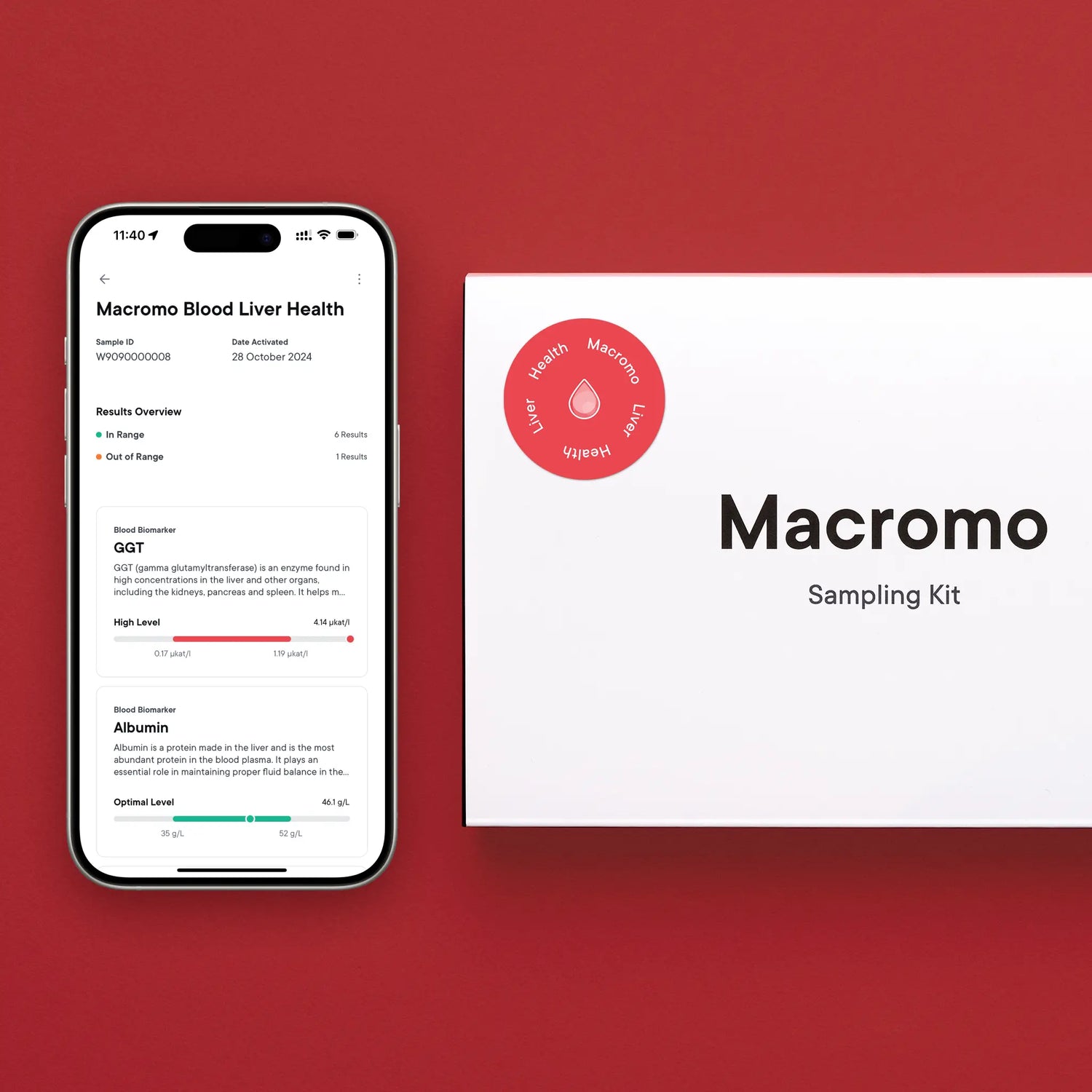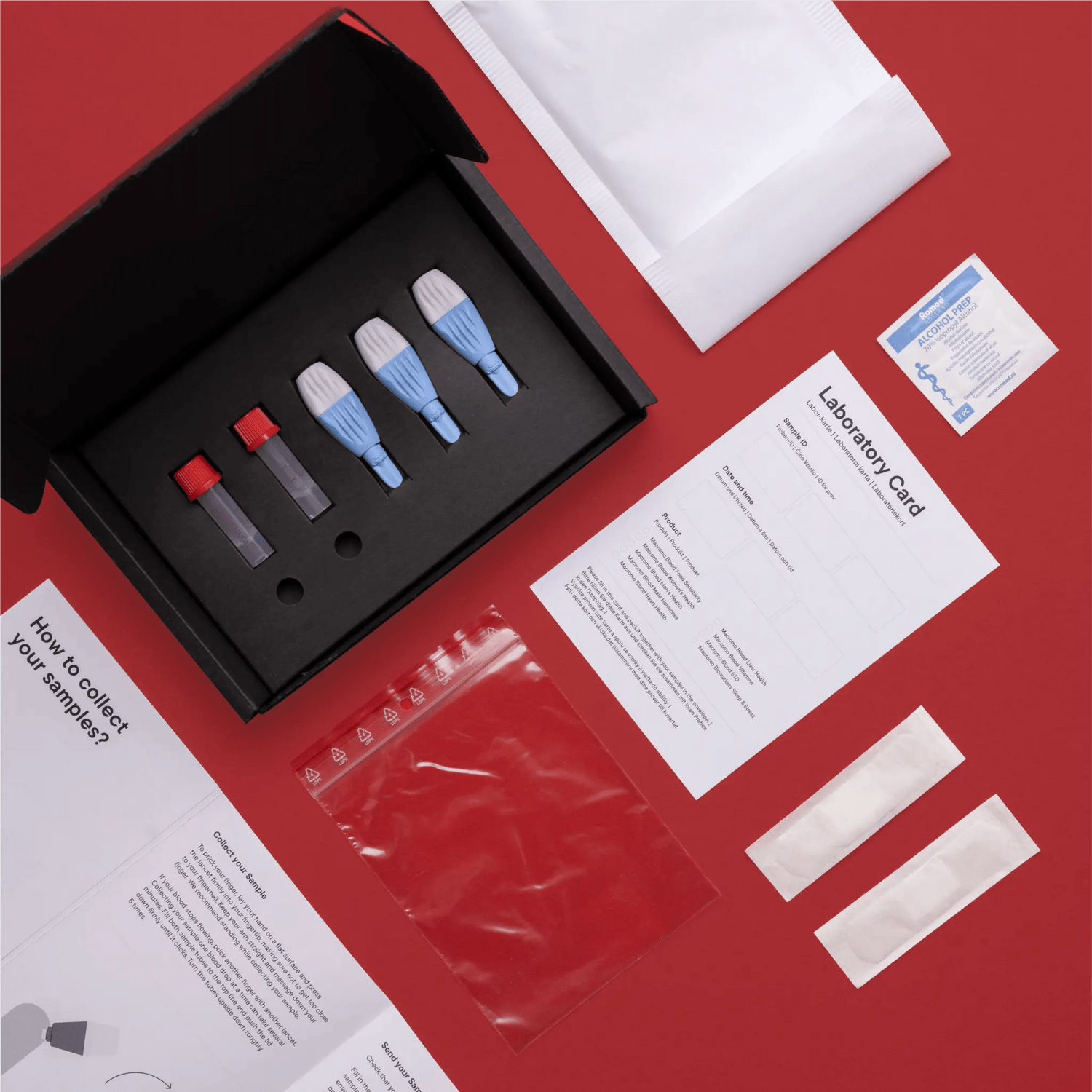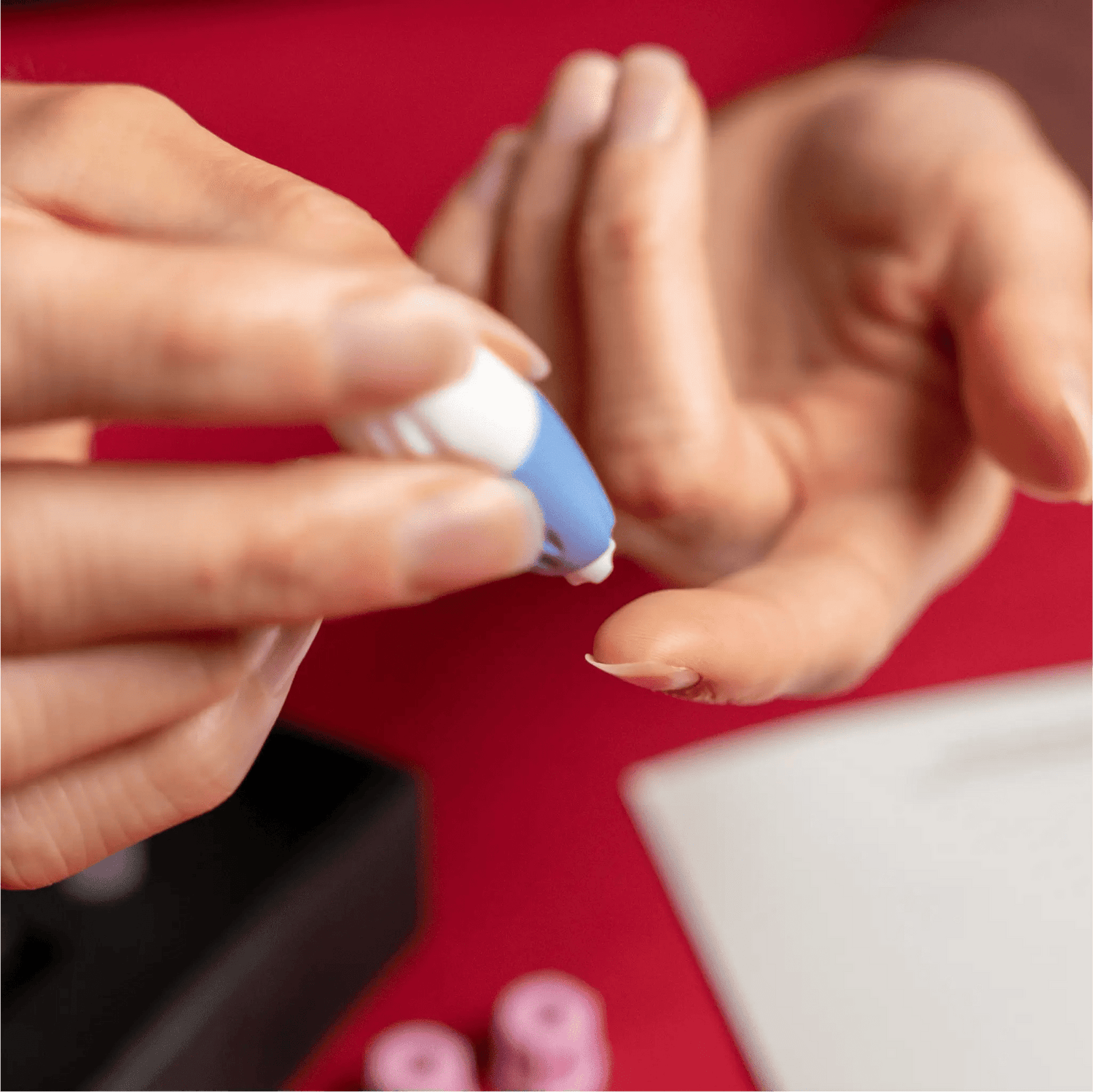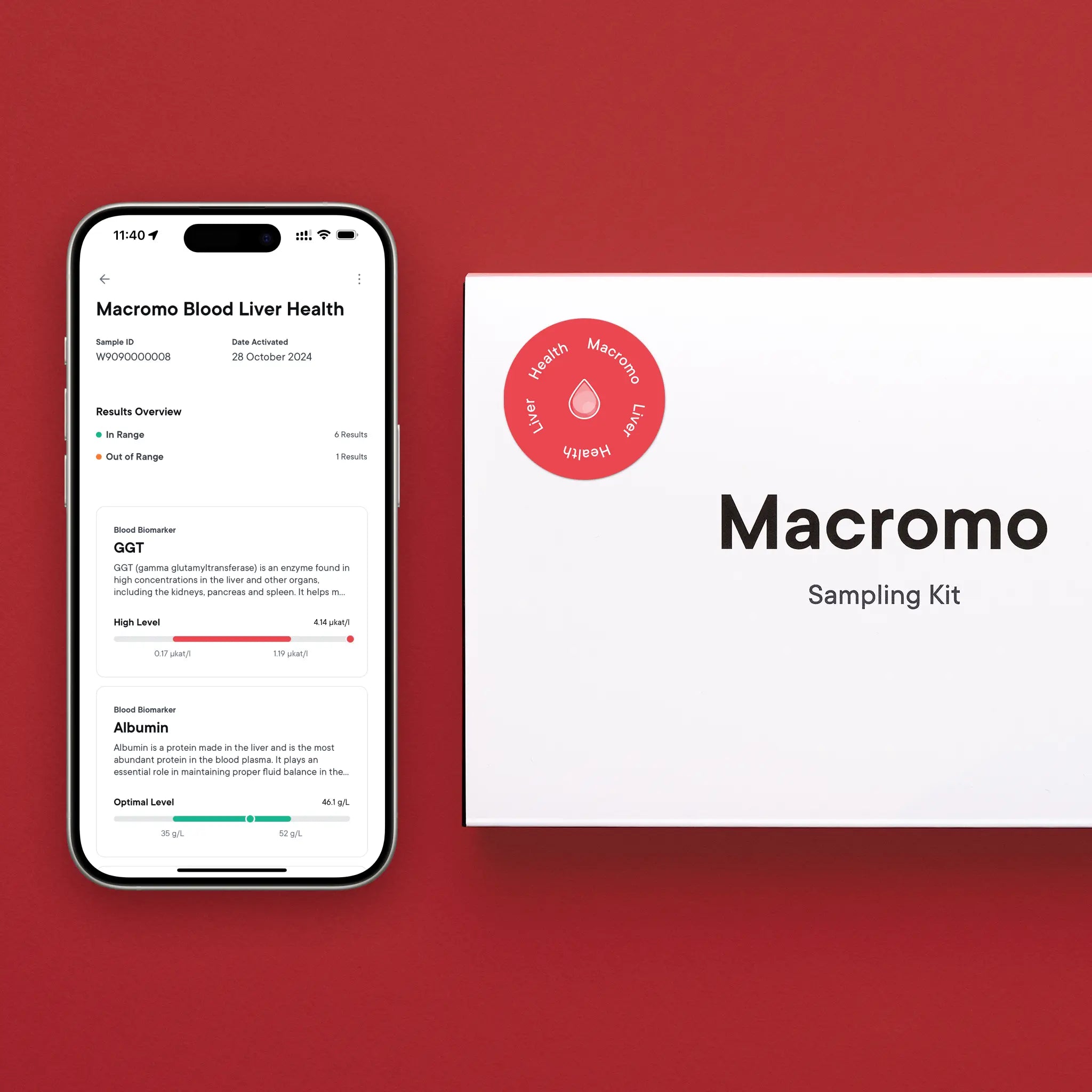

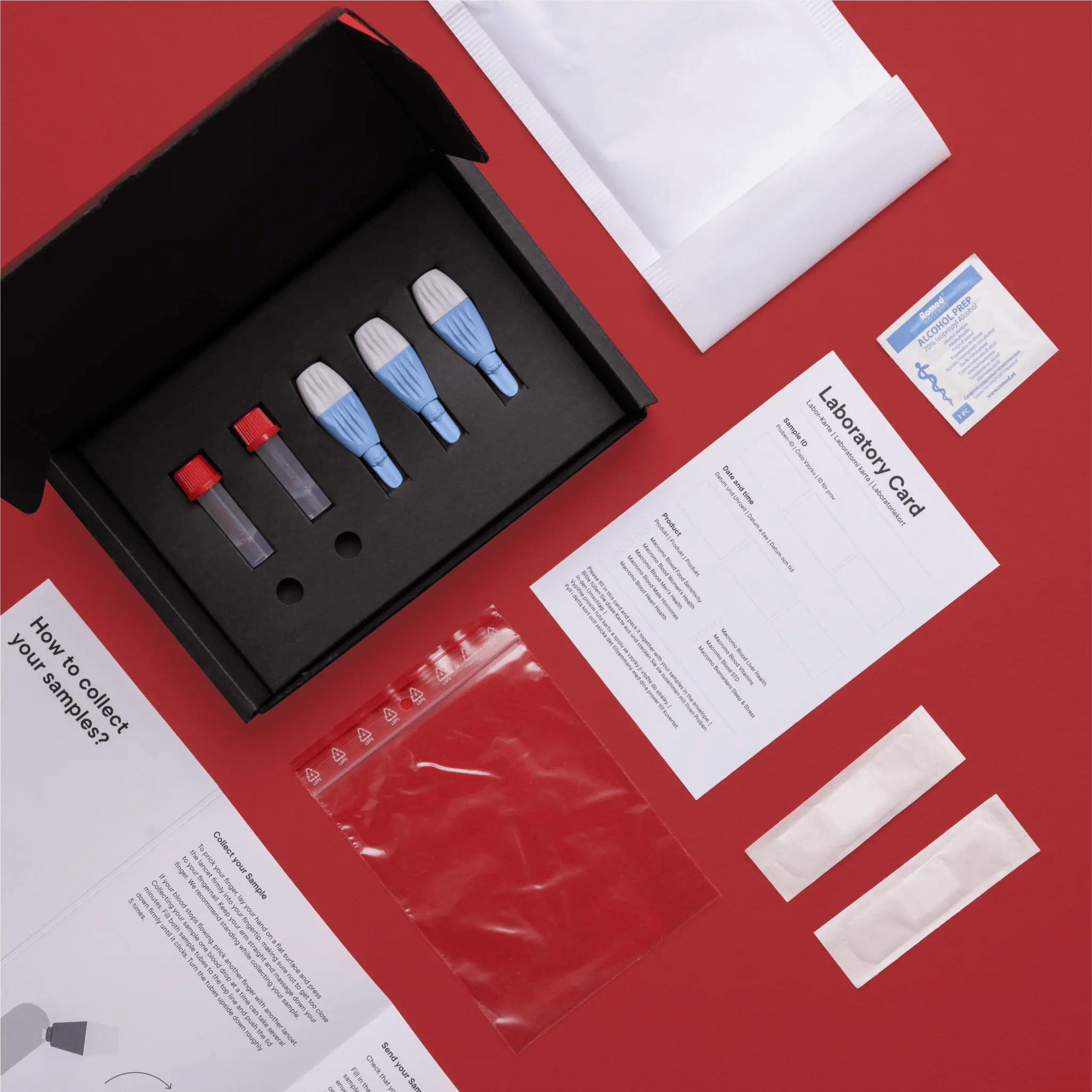
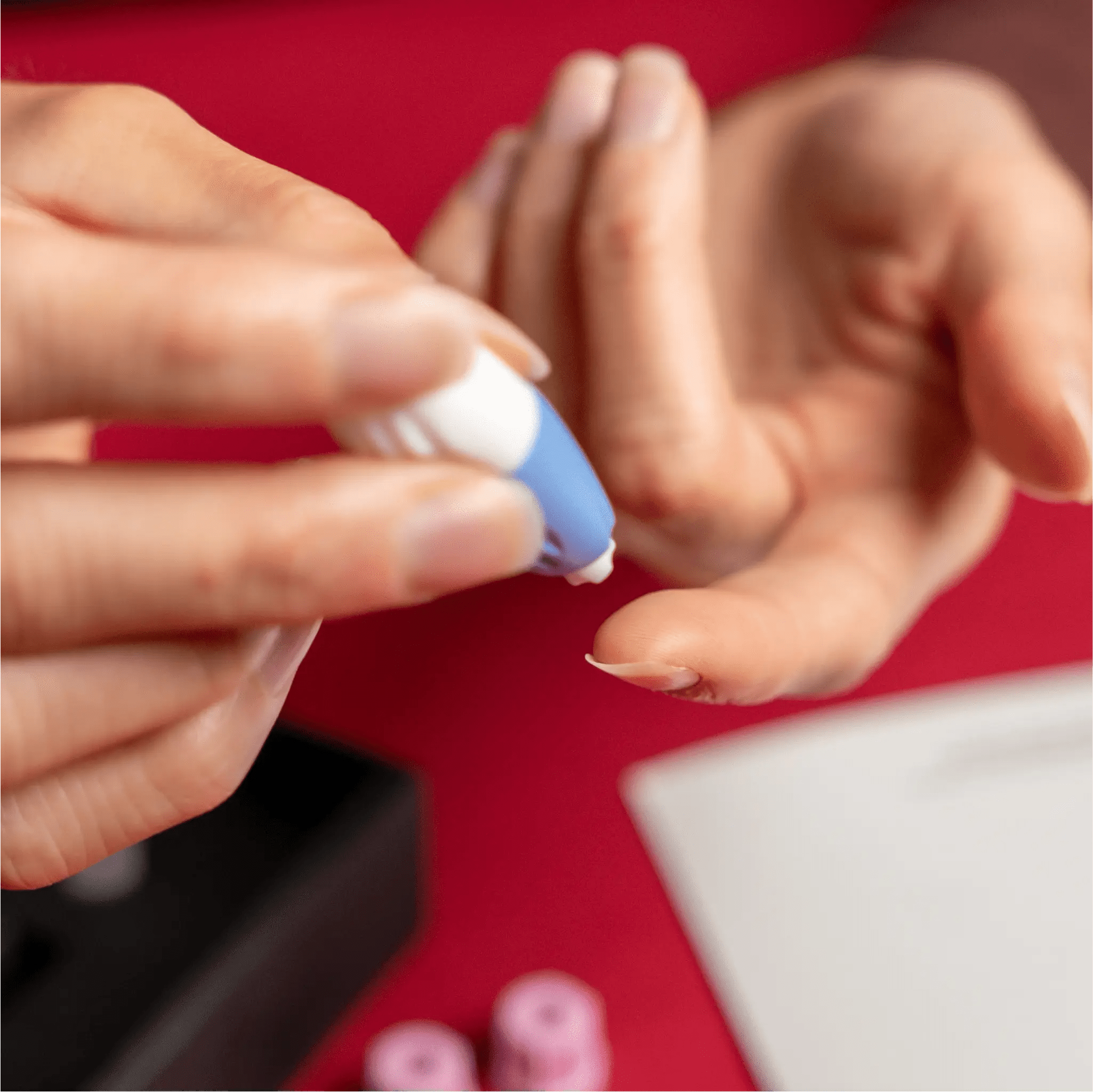
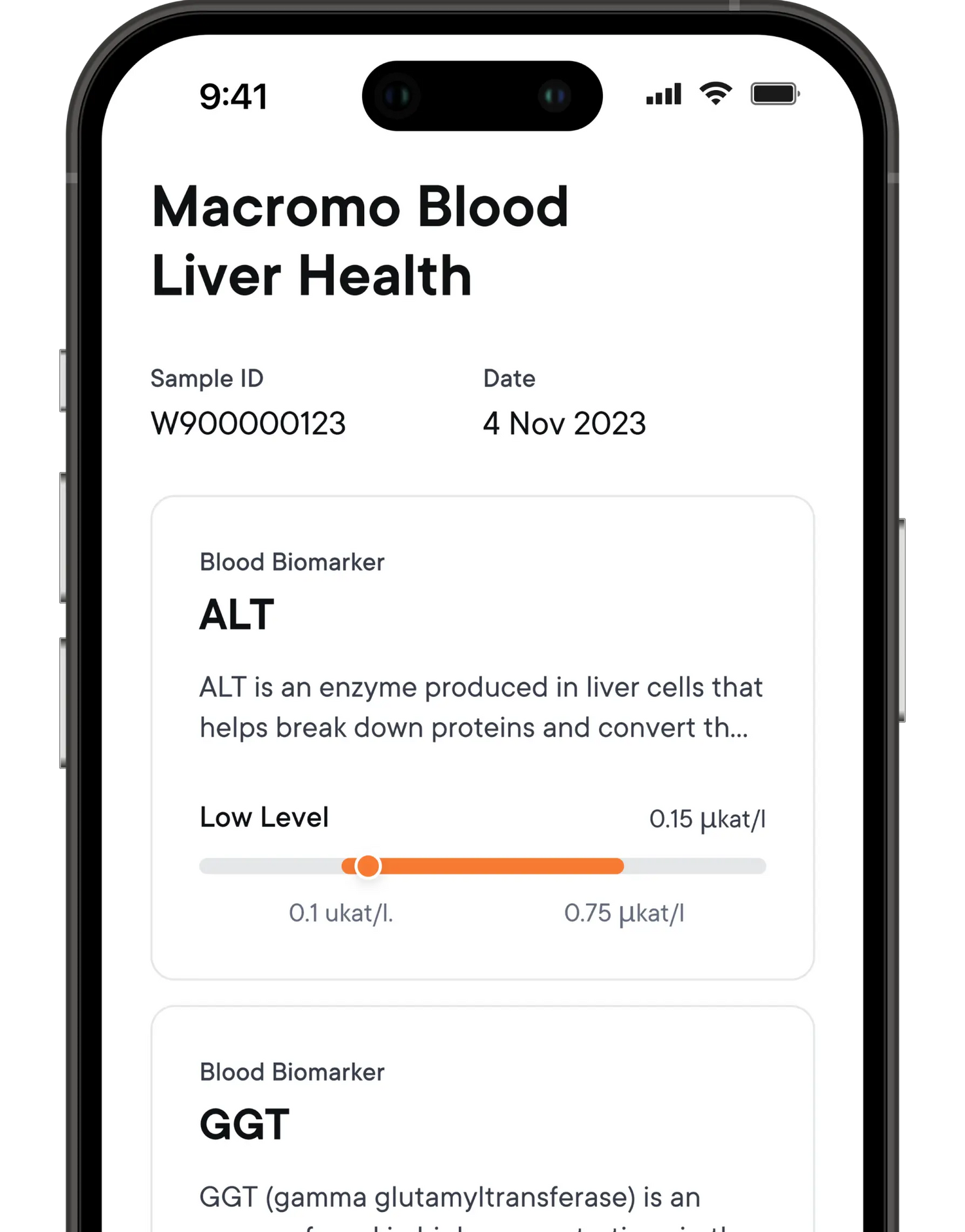
Meaningful Insights into your Health
Early detection of any irregularities
Timely interventions through lifestyle adjustments will help you live a healthy life and avoid future health problems.
Easy-to-understand results. Actionable recommendations
You get all your results in a Macromo mobile app which connects all your health data on one place and provides personalized recommendations for your healthier lifestyle.
Long-term monitoring of key biomarkers
To understand how your lifestyle affects your health, Macromo allows you to monitor overtime trends of your key health markers.
7 biomarkers that significantly affect liver health
By measuring these essential biomarkers, you can closely track the values of key indicators of your liver health. Early detection of any abnormalities allows for timely interventions and lifestyle modifications, ensuring better management of liver-related conditions and fostering a healthier, more fulfilling life.
GGT
GGT (gamma glutamyltransferase) is an enzyme found in the liver and other organs. It helps in the transport of amino acids and peptides, especially those involved in detoxification processes. Elevated GGT levels in the blood can signal liver problems, alcohol use, or certain medications' effects.
ALT
ALT (alanine aminotransferase) is an enzyme produced in liver cells that helps break down protein and convert it into energy. When liver cells are damaged, ALT is released into the bloodstream. Elevated ALT levels in the blood can indicate inflammation or liver damage, allowing for early treatment.
AST
AST (aspartate aminotransferase) is an enzyme found in liver cells. It plays a vital role in amino acid metabolism and energy production. When liver cells are damaged or inflamed, AST is released into the bloodstream, leading to higher than normal levels of the enzyme.
ALP
ALP (alkaline phosphatase) is an enzyme found in the liver, bile ducts, and bones. It is essential for various processes in the body, particularly in the liver's role in processing nutrients and detoxifying. Abnormal ALP levels in the blood can be indicative of liver or bone disorders.
Albumin
Albumin is a protein produced in the liver and is the most abundant protein in blood plasma. It plays a vital role in maintaining proper fluid balance in the body and transporting various substances, including hormones, drugs, and fatty acids. Albumin levels in the blood provide information about liver function and nutritional status.
Total bilirubin
Bilirubin is a waste product of the breakdown of red blood cells in the body. It is transported to the liver where it is processed and eliminated from the body. Abnormal levels may indicate problems with the liver, gallbladder, or hematopoiesis – the formation of blood cellular components.
Conjugated bilirubin
Conjugated bilirubin is the form of bilirubin that has been processed by the liver, where it is bound to other compounds to make it water-soluble. This transformation allows it to be excreted from the body via the bile. High levels can suggest liver disease, biliary obstruction, or other conditions.
Ing. Michal Pohludka Ph.D., MBA, LL.M.
Biochemist with a PhD in molecular pathology, co-founder of Macromo.

Results Guaranteed by Experts
Prevention Guaranteed by Experts
The Macromo blood test has been carefully compiled by a team of experienced doctors and healthcare professionals who have carefully selected and included specific biomarkers that provide valuable information about your health.
Certified Clinical Laboratory
We partner with top diagnostic laboratories to provide quality laboratory analysis used by physicians from primary care providers to teaching hospitals.
Frequently asked questions
Who is the test suitable for?
This test is designed for those who want to thoroughly assess their liver health as part of their preventive health care and thus have a comprehensive picture of their health. Regular testing provides a detailed overview of your health and is an important part of comprehensive prevention.
It is important to note that specific recommendations for testing may vary depending on medical history, risk factors, and health care provider assessment.
When will I get my results?
Results will be displayed on the Macromo mobile app within five business days of when we receive your sample.
Is the blood draw painful?
It is not. The blood draw is performed via a tiny puncture of an automated lancet into the belly of the finger, from which the blood is then collected into a tube. The puncture site may be slightly sensitive after the collection.
What if I fail to draw blood?
If you fail to collect enough blood, the sample cannot be tested and you will need to repeat the collection. In this case, please contact us and we will send you a new collection kit free of charge.
How quickly do I need to get the sample to the lab?
Once you have taken a blood sample at home, it is important to send it to the laboratory as soon as possible. Ideally, this should be done within 24 hours of collection. Biological material can begin to degrade over time, which can affect the accuracy of the test. Therefore, it is important to follow the instructions for the use of the kit carefully and deliver the sample to the laboratory promptly using prepaid shipping from PPL.
To avoid shipping complications, we recommend NOT sending samples on Friday afternoon or before a public holiday. Please note that if the sample degrades due to late shipment, it is considered the customer’s responsibility.
Why might my blood test results vary between different labs?
It’s important to understand that while all laboratories aim to deliver the most accurate results, variations between labs can occur. This is due to several factors, such as differences in the methods used to analyze samples, the precision of the equipment, the calibration of machines, and even how the samples are handled and stored. This does not necessarily mean that one lab’s results are wrong and another’s are right. Instead, it means that there might be slight differences between results due to these variable factors. To ensure consistency in our at-home testing service, we use a single lab to process all samples. This allows us to maintain control over many of these variables and provide you with the most consistent and reliable results possible.
Are there any medical conditions or medications that might make it unsafe to use this at-home blood test kit?
There are several medical conditions and medications that could potentially pose risks when using our at-home blood test kit. If you have a condition that affects blood clotting, such as a blood clotting disorder or if you're taking anticoagulant medication (blood thinners), we advise against using the kit. Similarly, individuals with blood-related disorders like hemophilia, other bleeding disorders, or a history of fainting with needle sticks or blood draws should also exercise caution. Additionally, those with poor peripheral circulation, such as individuals with diabetes or Raynaud's disease, may encounter difficulties in obtaining an adequate sample. If you are unsure about your condition it's best to consult with your healthcare provider to determine if an at-home blood test is suitable for you based on your specific medical circumstances. Our at-home blood test kit is designed for convenience and to supplement your regular health checks, but it's crucial that it's used safely.
What should I do if I use the at-home blood test kit and experience prolonged bleeding or bruising?
If you experience prolonged bleeding or significant bruising after using the at-home blood test kit, please seek immediate medical attention. It's important to note that these symptoms could be signs of an underlying condition that affects your blood's ability to clot, and you should discuss this with your healthcare provider. If you are experiencing an emergency, please dial the local emergency number right away.


